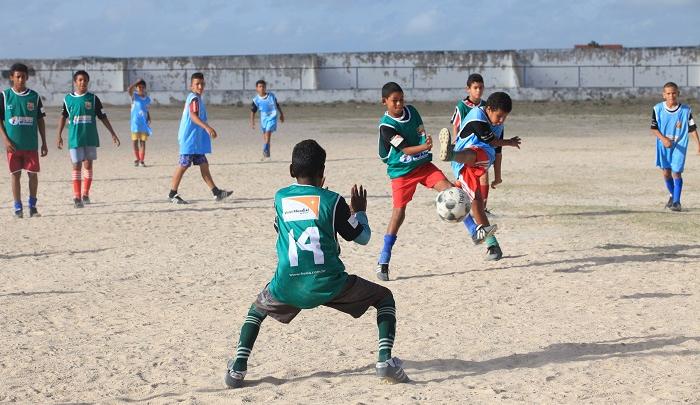
Recife, Brazil—(June 11, 2014) – Already dealing with many forms of exploitation throughout their childhood, Brazilian children and adolescents will be exposed to increased risk of labor exploitation, violence and sexual abuse, during the World Cup.
“Most of the 3.7 million tourists expected to visit Brazil in the next weeks are coming with good intentions,” said Joao Diniz, World Vision Brazil national director. “But we know that many of them are going to take advantage of the sex industry, which is already a big issue in Brazil, and one in which many children and adolescents are caught.”
“With more demand comes more supply. Sexual exploitation is already the second biggest form of violence against children aged between 10 and 14 years old in Brazil, so we are concerned that perpetrators will seize the opportunity offered by the World Cup to force more children and adolescents into this.”
Beside sexual exploitation, World Vision is concerned with other forms of exploitation such as an increase in child labor, mainly connected with street trading and collecting trash for recycling.
“More than 3 million children are involved in child labor in Brazil,” notes Diniz. “Such exploitation has negative effects on children’s physical and mental development.”
World Vision urges visitors and locals to report suspected cases of human rights violations to the competent bodies. This can be done through Councils of Guardianship, police specializing in the defense of child and adolescent rights, or anonymously by dialing “100” on their phone.
“Everyone should stay vigilant and be ready to denounce violence against children. The most important thing is not to be silent on the issue,” Diniz said.
World Vision is part of the Protect Brazil Convergence Agenda, a group composed of civil society members, government representatives and businesses that aim to prevent human rights violations of children and adolescents during major events.
About World Vision:
World Vision is a Christian humanitarian organization conducting relief, development, and advocacy activities in its work with children, families, and their communities in nearly 100 countries to help them reach their full potential by tackling the causes of poverty and injustice. World Vision serves all people regardless of religion, race, ethnicity, or gender. For more information, please visit www.WorldVision.org/media-center/ or on Twitter @WorldVisionUSA.
Highlights
- 3.7 million tourists expected to visit Brazil during the World Cup
- Increased sexual exploitation and child labor amongst main concerns for World Vision
- World Vision urges visitors to report incidents